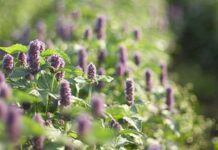Main ranges of ecology:Ecology research how completely different ranges of nature work together with one another and their atmosphere. In easy phrases, it is about understanding the place our meals comes from and the way it impacts our well being. There are 5 major ranges of ecology: micro-level, meso-level, meta-level, macro-level, and world. Let’s take a better have a look at each to raised perceive how they influence our lives.
Organism Degree
Main ranges of ecology On the organism stage, ecology research how organisms work together with one another and their atmosphere. Organismal interactions may be labeled based mostly on the extent of interplay: bodily, chemical, and organic. Bodily interactions contain direct contact between organisms; chemical interactions happen when one organism impacts the conduct or physiology of one other by chemical compounds launched into the atmosphere; and organic interactions discuss with how organismsiotic merchandise (equivalent to viruses) work together with different organisms.
Bodily interactions are the most typical interplay between organisms and account for almost all cases of ecological interplay. Bodily interactions may be categorized into contact, competitors, and predation. Contact interactions happen when two or extra organisms come into direct contact with one another; competitors happens when one organism tries to make use of up all of the sources out there to a different; and predation refers to a sort of interplay wherein one organism kills one other for meals or shelter.
Chemical interactions major ranges of ecology are rarer than bodily or organic interactions however can considerably influence ecological techniques. Chemical interactions occur when one organism impacts the conduct or physiology of one other by chemical compounds launched into the atmosphere. Chemical reactions can happen between molecules inside an organism or between an organism and its atmosphere.
Organic interactions are the rarest sort of ecological interplay however can influence ecosystems greater than some other sort of interplay. Organic interactions occur when one organism produces an impact on one other by secretions (equivalent to hormones), genetic materials (like viruses), or power (like mild). Organic interactions can positively or negatively influence ecosystems relying on the kind of interplay and the species concerned.
Inhabitants Degree
Ecology is the scientific research of the interactions between residing issues and their bodily, chemical, and Organic atmosphere—ranges of ecology deal with how populations, communities, and ecosystems operate at completely different ranges of the group.
There are three major ranges of ecology: microcosm, mesocosm, and macrocosm. Microcosm research how particular person organisms and cells work together inside their atmosphere. Mesocosm research how populations and communities of organisms work together with one another of their pure habitats. Macrocosm research the best way complete ecosystems operate inside their bigger environment.
Populations are the smallest stage of ecology that researchers usually research. A inhabitants is a gaggle of animals or crops that stay collectively in the identical space and have comparable genetic traits. Inhabitants biologists research how populations develop and alter over time by learning particular components equivalent to beginning charges, loss of life charges, migration charges, competitors for sources, and predation charges.
Neighborhood Ecology is a area of ecology that focuses on how populations and communities work together on the mesocosms stage. Neighborhood ecologists research how individuals fluctuate throughout house (i.e., what determines the place a inhabitants will stay), how they work together with one another (predator-prey interactions and symbiotic relationships), and what determines their success or failure.
Ecosystem Ecology is a area of ecology that focuses on how complete ecosystems operate inside their bigger environment on the macrocosmic stage. Ecosystem ecologists research how populations, communities, and the atmosphere work together to create the construction and performance of ecosystems. In addition they research how ecosystems change over time and the way they reply to perturbations equivalent to local weather change.
You Can Additionally See alegrianatural.co
Neighborhood Degree
There are a lot of completely different ranges of ecology, and every has its personal guidelines and laws. The degrees under are the most typical ones:
1. species stage
2. neighborhood stage
3. ecosystem stage
4. biotic stage
5. abiotic stage
Ecosystem Degree
The ecology of a species or ecosystem may be damaged down into 5 major ranges: the person, neighborhood, inhabitants, panorama, and biotic province.
1. Particular person Degree: This stage considers the person organism, equivalent to a plant or animal. Every organism has its personal set of distinctive wants and behaviors that have an effect on its atmosphere.
2. Neighborhood Degree: This stage appears to be like at teams of organisms working collectively to outlive and reproduce. A individuals group contains all of the several types of organisms in an space, from small crops to giant animals. Communities come collectively to kind ecosystems, large techniques with many components affecting one another.
3. Inhabitants Degree: The population-level appears to be like at what number of organisms are in an space and the way they alter over time. Inhabitants density is crucial right here as a result of it influences how sources are shared between completely different species and have an effect on how properly the ecosystem capabilities.
4. Panorama Degree: The panorama stage appears to be like on the complete atmosphere round a specific location—from the soil to the environment above it. It contains every little thing from tiny microorganisms to huge forests and deserts. Adjustments within the panorama can have huge impacts on populations and communities close by.
5. Biotic Province Degree: The biotic province stage considers the interactions between completely different residing issues in an space—from single-celled organisms to complicated ecosystems like rainforests. These interactions decide the atmosphere a species can stay in and have an effect on its survival.
Biosphere Degree
Nature is the investigation of the associations amongst natural entities and their present circumstance. There are 5 major ranges of ecology: organism, neighborhood, ecosystem, biosphere, and superorganism.
Organism: This stage appears to be like on the particular person organism and its particular wants.
Neighborhood: This stage appears to be like at teams of organisms and their interactions.
Ecosystem: This stage appears to be like at a whole complicated of organisms and their relationships to one another and their atmosphere.
Biosphere: This stage appears to be like on the complete Earth as a single unit, together with its residing organisms and nonliving parts.
Superorganism: It is a new class that features organizations which can be a lot bigger than some other sort of organism on Earth.
Conclusion
There are 5 major ranges of ecology, which embody: Ecological techniques, biomes, communities, populations, and ecosystems. Every group has complexities and challenges that have to be thought of when managing a pure space or ecosystem. Understanding the completely different ranges of ecology and their corresponding administration methods will help protect our planet for future generations.












